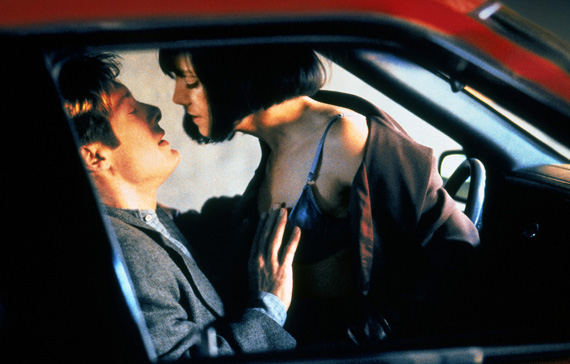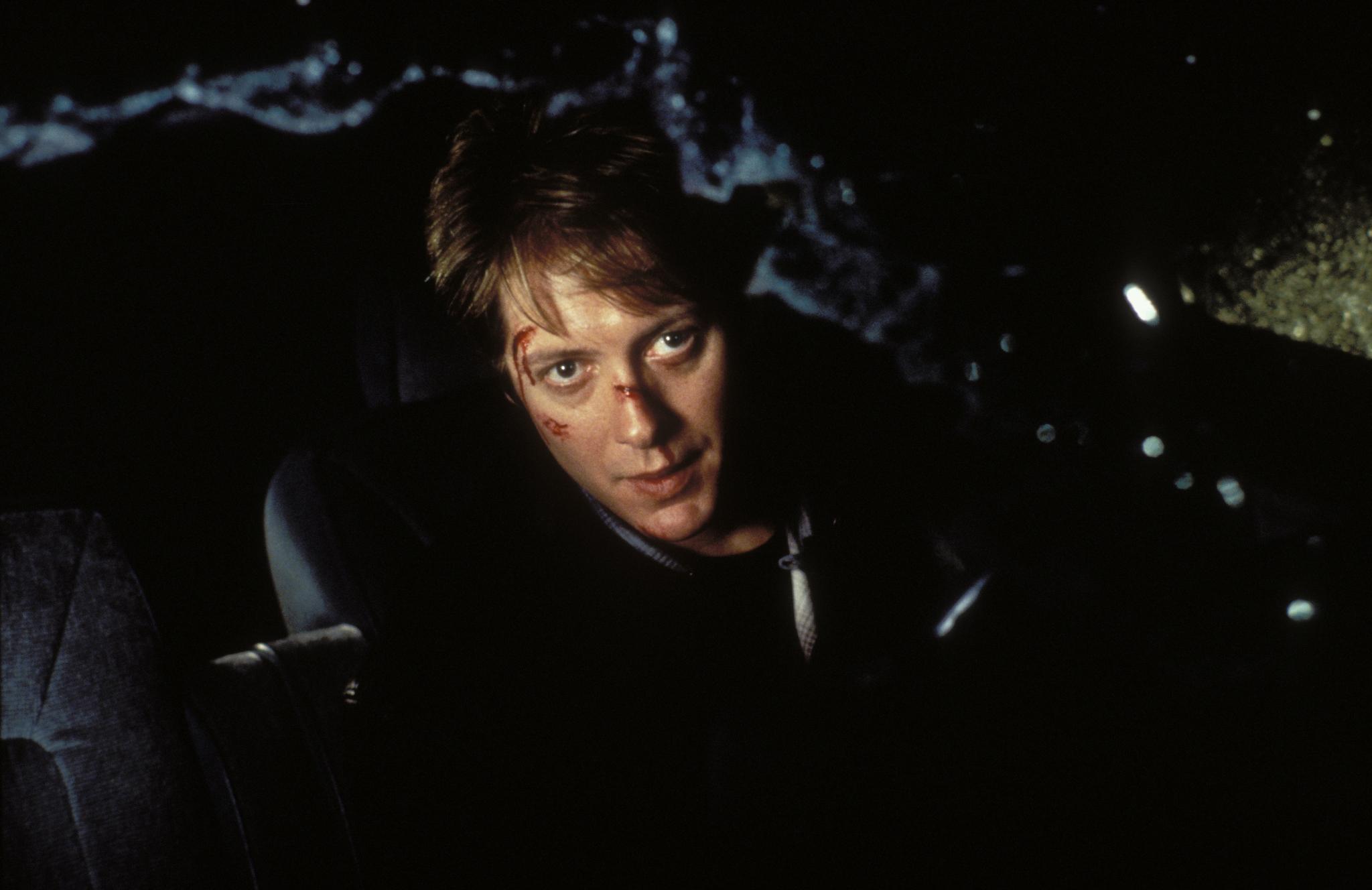
“Crash is a movie De Sade would have adored.”
– J.G. Ballard
Always crashing in the same car
“Film for film,” writes film critic and historian J. Hoberman, “[David Cronenberg] is the most audacious and challenging director in the English-speaking world.” Certainly 1996’s brassy and grotesque fever dream Crash exemplifies such an idea and with an appetite. A polarizing study of modern pathologies, Crash adapts J.G. Ballard’s fetishistic 1973 novel about a cult-like collection of disparate people who take extreme sexual pleasure via automobile accidents.
Awarded a Special Jury Prize at the 1996 Cannes Film Festival “for originality, for daring and for audacity”, Crash was still sideswiped with controversy in many places for its graphic sex and disturbing violence. But for a film borne from a celebrated and contentious writer’s most notorious novel (one critic of Ballard’s novel raved he was “beyond psychiatric help”), and a director previously nicknamed the “Baron of Blood” for his enraged genre pictures, was it truly any wonder? Of course Crash was going to have to overcome conservative roadblocks from old-fashioned audiences and stuffy, conforming critics.
Courting controversy was already an over familiar impound lot for Cronenberg long before Crash was manufactured: most of his previous films had attracted adversity worldwide for their surrealistic, sexualized deteriorations and mutilations of the human body––Cronenberg’s long been synonymous with with subgenre he pretty much invented, “body horror”––as well as purposefully unrefined fusions of man and technology. Crash was, pardon the pun, the perfect vehicle for Cronenberg’s distinct sensibilities.
“[Crash is] like a porno movie made by a computer: It downloads gigabytes of information about sex, it discovers our love affair with cars, and it combines them in a mistaken algorithm. The result is challenging, courageous and original.I admired it, although I cannot say I ‘liked’ it.”
– Roger Ebert
Unsafe at any speed

Veering from Ballard’s novel, Cronenberg set his Crash in the contemporary 1990s instead of the 1970s and relocated proceedings from London, England, to Cronenberg’s neck of the woods, Toronto, Canada. And it’s here that we meet the seemingly bored married couple, Catherine (Deborah Kara Unger) and James (James Spader).
Cronenberg introduces us to Catherine and James, opening the film, in a series of sex scenes: Catherine being unfaithful to James; James likewise being unfaithful to Catherine; and then the two together sharing their infidelities during their own lovemaking. They have an open marriage, obviously, and their constant quest for stimulating excitation and kinky new thrills eventually leads them to Vaughn (Elias Koteas), a half-crazy car-crash sex-addicted Lothario with something of a Christ complex (he’s obsessed with what he calls the “reshaping of the human body by modern technology”).
After James winds up in a near-fatal auto collision he finds himself infatuated with the enigmatic and oddly charismatic Vaughn and is soon swept up in his many unhealthy hang-ups including his idea to reenact famous celebrity car crashes (such as the fatal collisions that claimed James Dean and Jayne Mansfield). This thrusts James and Catherine both into a bloody and libidinous cycle of wrecks, rear-enders, savage scars, and constant sex.
“Arguably the closest commercial Western cinema has come to Oshima’s Ai No Corrida – what ‘story’ there is consists chiefly of a series of obsessive, claustrophobic, transgressive sex-scenes… It’s a dark, disturbing, languorous movie, as ludicrous, hermetic and repetitive, perhaps, as Ballard’s original, but admirably assured and true to itself.”
– Geoff Andrew, Time Out
The atrocity exhibition

Filmed with an icy and detached formalism (greatly owed to the expert lensing of frequent Cronenberg collaborator, cinematographer Peter Suschitzky) and bolstered by a fearless ensemble cast which also includes startling performances from Rosanna Arquette and Holly Hunter, it’s no surprise that Crash’s upsetting premise and constant artful display of sex and violence strongly juxtaposed in a guilefully fetishized manner, upset so many.
Widely lauded in Europe (Cahiers du Cinéma was particularly fond of the film) and Cronenberg’s native Canada, reactions were mixed most everyplace else. As well the movie fell victim to terrible tabloid press that succeeded in the UK with delaying the release date and resulting in banning of the film in many foreign markets. It was essentially a notorious cult classic before most audiences had even laid their eyes on it.
In the years since its contemptuous release, Crash has found resonance not just with Cronenberg’s devoted fans, but also with adventurous audiences that, not unlike Catherine and James, seeking the forbidden fruit of paradise so often promised in cinema but so seldom grown and gleaned to gratification.
As radical meditation on the interconnectedness of body, mind, machine, and desire, Crash withstands the human appetite for passion in an alienated world of indifferent technology, instant gratification, and endless cynicism. Somewhere amidst the shattered glass, the curlicues of smoke, and the coppery scent of blood is also a fleeting glimmer of buoyancy and daydream.
Author Bio: Shane Scott-Travis is a film critic, screenwriter, comic book author/illustrator and cineaste. Currently residing in Vancouver, Canada, Shane can often be found at the cinema, the dog park, or off in a corner someplace, paraphrasing Groucho Marx. Follow Shane on Twitter @ShaneScottravis.